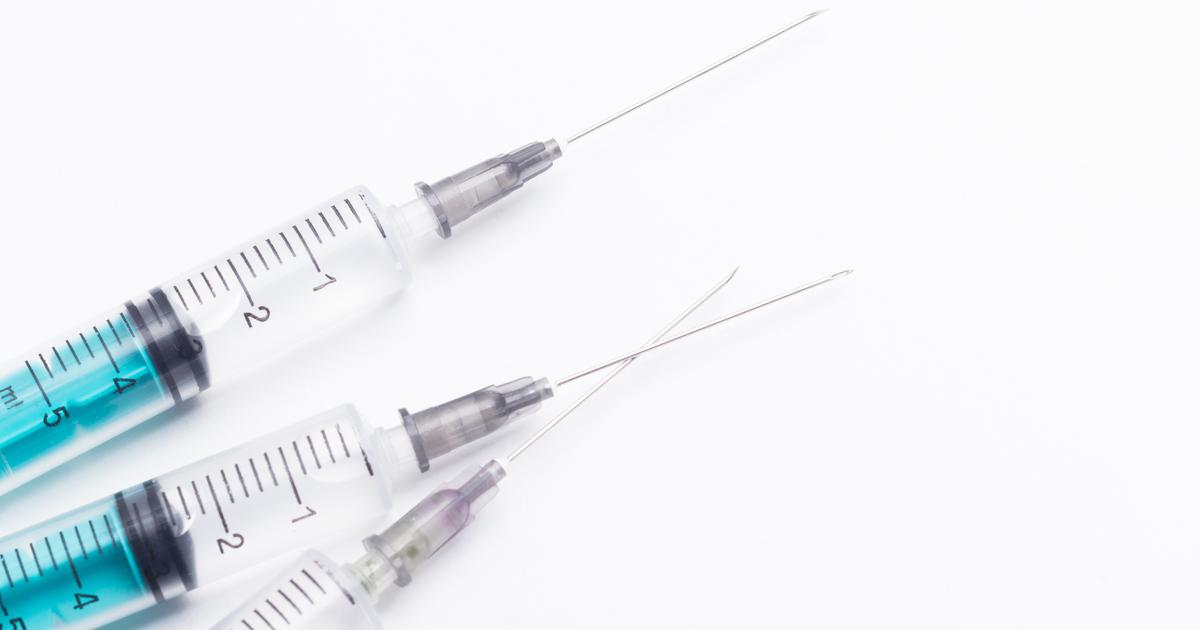Enlarge image
Vaccination against Covid-19: 22 studies were evaluated in which data from around 405 million vaccinations were processed
Photo: Pedro Merino / imago images/Addictive Stock
In rare cases, the corona vaccines from Biontech and Moderna can trigger myocarditis, this has been known since June 2021.
A research team has now analyzed whether this side effect actually occurs more frequently with the corona vaccines than with other vaccinations - and who is particularly at risk.
The group systematically searched for studies that addressed myocarditis and pericarditis as a possible side effect of vaccination.
The work published in the journal The Lancet Respiratory Medicine initially confirms what previous studies on the Covid vaccines have shown: that the risk is greater for men, for people under the age of 30 and for the second vaccination.
And that it is greater with the RNA vaccines than with other corona vaccines.
The group led by Kollengode Ramanathan from the National University Hospital in Singapore evaluated 22 studies in which data from around 405 million vaccinations were processed.
Because most studies only included adults or children and adolescents aged 12 and older, the data do not reveal anything about younger children.
For every million vaccinations with RNA vaccines, there were around 23 cases of heart muscle or pericarditis, with the other Covid vaccines there were around eight cases, if you look at the corona vaccinations in total there were 18 cases.
After the first vaccination, there were around seven cases per million vaccinations, after the second vaccination there were around 31. Among men under the age of 30, who were the most affected group, there were around 60 cases per million vaccine doses.
For comparison: There were around five cases in women of the same age.
How often myocardial and pericardial inflammation generally occurs can only be roughly estimated.
Overall, men are affected more often than women. In a Finnish study, for example, which examined all hospital admissions for heart muscle inflammation, three quarters of those affected were male - and on average 35 years old.
Inflammation of the heart muscle, medically: myocarditis, often occurs as a result of a viral disease.
Anyone who falls ill should take it easy so that the heart can heal without permanent damage.
Cardiac inflammation, medically: pericarditis, is often the result of an infection.
In the current study, the researchers state that 8 to 17 myocarditis and 5 to 22 pericarditis per million people per month are assumed, with the risk differing according to age and gender.
In an accompanying article in The Lancet Repiratory Medicine, Margaret Ryan from the University of California San Diego writes that the overall frequency of heart muscle and pericarditis after the corona vaccination is no higher than would be expected without vaccination.
However, the important information hidden in the overall data is that the risk for young men after the second vaccination is significantly higher than expected.
Because, according to other studies, the RNA vaccines do not increase the risk to the same extent, it is recommended in Germany, among other things, not to vaccinate under 30-year-olds with the Moderna preparation, but with the one from Biontech.
The research team also looked at studies in which the occurrence of this complication with other vaccinations had previously been observed.
In fact, the frequency of heart muscle and pericarditis after corona vaccinations does not differ statistically from that after flu vaccination or other vaccinations against viral pathogens.
According to the study, this risk is only higher with one vaccination: vaccination against polio.
Around 132 cases per million vaccinations were recorded here.
For the studies on this vaccine, however, primarily US military personnel were observed, i.e. mainly young men.
According to the authors of the study, this may explain the comparatively high number.
The US military's polio vaccinations under investigation were carried out with a live vaccine, a completely different vaccine than the one that has been used in Germany for more than 20 years.
"The occurrence of heart muscle and pericarditis after non-corona vaccinations could mean that these are side effects of the inflammatory processes that are triggered by every vaccination," says infectiologist Jyoti Somani, co-author of the study.
"This underscores that the risks of such rare adverse events should be outweighed by the benefits of vaccination, which include reduced risk of infection, hospitalization, serious illness and death from Covid-19."
As in other studies before, the team led by Kollengode Ramanathan also calculates that the risk of heart muscle inflammation in the case of a corona infection is significantly greater than after a vaccination.
Margaret Ryan writes that all medical experts who have reported heart muscle inflammation after corona vaccinations have emphasized that in the pandemic the benefits of vaccination are still significantly greater than the risk.
Nevertheless, research should not stand still: other vaccines, other dosages, other intervals between vaccinations could help to further reduce the risk of this rare side effect and should be researched.





